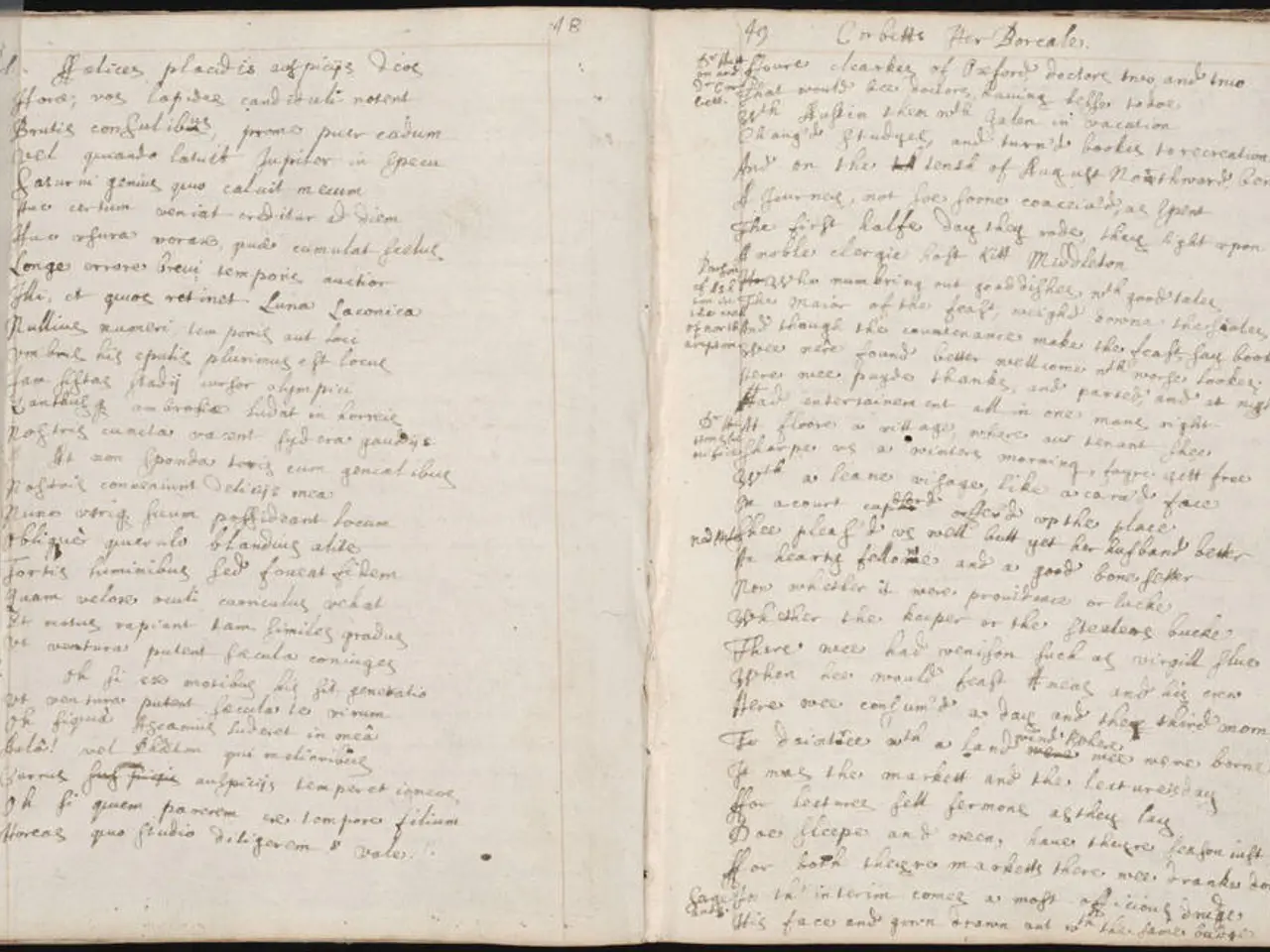Exploration of Language in the context of guilt and speechlessness - An Analysis of Alexander Saechtig's book "Beyond Moscow"
==============================================================================
In the realm of literary discourse, Alexander Saechtig's "Beyond Moscow" stands as a compelling examination of guilt, delving deep into its intricacies as a historical, political, and societal phenomenon. Published by Georg Olms Verlag, Baden-Baden, this culturally multifaceted and literarily complex book is part of the series "Germanistische Texte und Studien 106".
Structure and Content
"Beyond Moscow" is structured into six chapters, featuring text fragments, biographies, and documentary shadows. The book does not adhere to a narrative chronology but instead presents itself as a literary archive of inner and societal breaks, interwoven with documentary elements, portraits, correspondences, and images.
Guilt as a Historical and Political Motif
Saechtig situates guilt within the shadow of Soviet history, where personal and collective guilt intertwine with narratives of oppression, complicity, and resistance. He investigates how citizens grapple with past silences and complicity in state violence, revealing guilt as a lingering force shaping identity and memory.
Narrative Forms and Guilt
The book explores how literary and cultural texts represent guilt, often using fragmented, non-linear storytelling to mirror the fractured nature of collective memory and the internal conflict of characters. This narrative strategy underscores how guilt resists simple resolution and demands ongoing engagement.
Social and Ethical Dimensions
Saechtig emphasizes guilt’s role in fostering dialogue about moral responsibility and justice within society. By bringing shame and accountability into public discourse, guilt becomes a catalyst for reckoning and potential reconciliation, challenging societal denial or amnesia.
Interpersonal and Intersubjective Layers
Beyond large-scale social reflection, "Beyond Moscow" examines guilt in personal relationships, highlighting how feelings of guilt can both isolate individuals and motivate connection and empathy, thereby shaping social cohesion.
Geographic Focus
Chapters I-III focus on transition societies in Eastern Europe, including China, East Germany, Poland, and the Baltics. Chapter V expands the focus to Asia, discussing commercialization and memory politics in China and Vietnam. Conversations with Zhang Jie and Pietro Quaroni are included. Chapter IV introduces Günter Grass, offering a transnational literary perspective. Chapter VI explores different forms of processing tabooed themes in the research area, featuring Hei Ma and Ba Jin.
A Literary Experience
"Beyond Moscow" includes conversations with eyewitnesses, photographs, letters, and literary commentary, creating a multidimensional experience. The book does not rely on trends like magical realism but on rebellion against reflecting reality, paving the way for another fictional form.
In sum, Saechtig’s "Beyond Moscow" presents guilt as a complex, multifaceted concept embedded in cultural memory and societal conversations, instrumental in confronting the past and negotiating identity in a changing political landscape. His literary approach reveals guilt’s power to influence both personal conscience and collective historical understanding.
The ISBN-13 for "Beyond Moscow" is 978-348742400-2. The book contains 240 pages and is priced at 54 Euro. It is a must-read for anyone interested in understanding the role of guilt in shaping societal narratives and personal identities, especially in the context of post-Soviet identities and historical reckonings.
This book, "Beyond Moscow," serves as a platform for exploration of guilt in various dimensions, intertwining it with education-and-self-development and entertainment through its intricate narrative. It offers readers a captivating blend of books that dives deep into guilt as a historical, political, and societal phenomenon, backed by the publication of Georg Olms Verlag, Baden-Baden, as part of the series "Germanistische Texte und Studien 106."
As a culturally multifaceted piece, "Beyond Moscow" juggles elements of education and self-development with entertainment, employing a literary archive of personal and societal breaks, interwoven with documentary elements, portraits, correspondences, and images, thereby enriching the reading experience.




